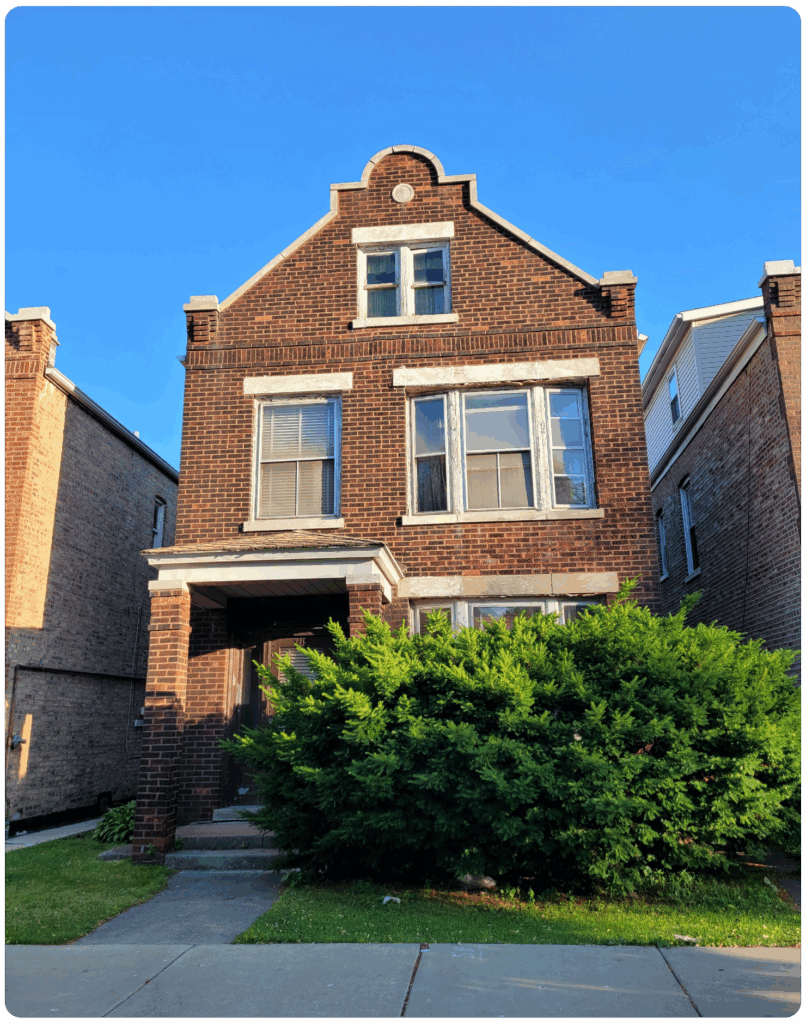
Introduction to Hospital Liens: What You Need to Know
Hospital liens substantially influence Illinois homeowners, so understanding how they work is critical. When a person obtains medical treatment after an accident, hospitals may file a lien against whatever settlement or judgment the patient receives from a personal injury claim.
This legal claim ensures that the hospital receives direct payment from the patient’s reimbursement for its services. In Illinois, hospital liens are governed by statutes that specify how and when they can be filed and enforced.
Homeowners should be aware that, while these liens do not attach directly to their property unless specifically stated, they may still affect financial settlements or negotiations following an injury lawsuit. Understanding how hospital liens work allows people better to navigate relationships with healthcare professionals and insurance companies, ensuring that their rights and obligations are apparent during recovery.
Understanding this component of personal injury law is critical to safeguarding one’s financial interests following an accident.
The Legal Framework of Hospital Liens in Illinois

The Illinois Hospital Lien Act provides the primary legal basis for hospital liens in Illinois. This statute authorizes hospitals to place a lien on any settlement or judgment resulting from a personal injury claim.
This lien ensures that hospitals can recover costs for medical services supplied to wounded patients due to another party’s negligence. To be enforceable, hospitals must closely follow the Act’s procedural requirements, such as giving formal notice of the lien to both the patient and any liable third parties, including insurance companies and attorneys involved in the case.
Furthermore, hospitals must submit the lien to the proper office within 90 days of providing medical services. Homeowners in Illinois must recognize that, while hospital liens may attach to settlements, they have no direct influence on their property unless specific requirements are accomplished through judicial proceedings.
Understanding these nuances might assist homeowners in negotiating potential financial liabilities resulting from medical expenses associated with personal injury claims.
Navigating the Illinois Hospital Lien Act
Navigating the Illinois Hospital Lien Act can be difficult for homeowners seeking to comprehend the implications of hospital liens on their property. Under this Act, hospitals in Illinois can place a lien on a patient’s personal injury settlement or judgment to recover outstanding medical expenditures.
Homeowners should be aware that, while these liens primarily target lawsuit settlements, they can indirectly impact property if not resolved swiftly. Hospitals must follow precise steps to perfect a lien, such as contacting relevant parties and submitting within statutory timeframes.
Understanding these legal standards is critical for homeowners seeking to protect their assets and ensure that settlements are handled equitably. Communicating proactively with healthcare providers and legal authorities can assist in properly navigating these liens, ensuring that all financial responsibilities are completed without causing undue issues for the homeowner’s estate.
Steps Hospitals Take to Place a Lien on Property
When a hospital tries to establish a lien on an Illinois property, it usually takes several essential procedures to protect its financial interests. Initially, the hospital will provide medical care to a patient who cannot pay the full cost.
The hospital’s billing department will next attempt to collect payment directly from the patient or their health insurance provider. If these efforts fail, the hospital may file a lien against the patient’s real estate holdings to collect the debt.
To begin this process, the hospital must draft and submit a legal lien notice to the county recorder’s office where the property is located. This document must include extensive information concerning the debt, such as the amount owing and the nature of the medical service delivered.
Once filed, this lien becomes a public record and effectively attaches to the debtor’s real property in that jurisdiction. This lien may hinder future property transactions, such as refinancing or selling the property, because any outstanding liens must usually be settled before a clear title can be transferred.
Thus, understanding each step hospitals take in obtaining a lien is critical for Illinois homeowners who may face claims against their property due to outstanding medical bills.
Common Reasons for Hospitals to Enforce Liens
In Illinois, hospitals may place liens on a homeowner’s property for various reasons, the most common of which is to collect expenditures associated with medical treatments and services delivered. When a person receives medical care due to an accident or injury, hospitals frequently seek reimbursement for their costs by putting a lien on any future settlement or judgment the patient may obtain from a third party, such as an insurance provider.
This legal action assures that the hospital is compensated before the patient is paid any residual monies. Furthermore, if a patient’s health insurance coverage is insufficient to cover the whole cost of medical expenditures, hospitals may use liens to secure payment.
Hospitals also use liens when patients cannot immediately pay their outstanding medical obligations. These liens are an essential financial tool that allows healthcare facilities to reduce losses and continue operations while ensuring that those who have benefited from necessary medical treatments meet their financial commitments.
How Hospital Liens Affect Homeowners in Illinois
In Illinois, hospital liens can substantially impact homeowners by establishing a legal claim on their property to recover unpaid medical bills. When a patient receives treatment in a hospital and cannot pay the associated expenses, the hospital may file a lien against the patient’s home.
This lien provides the hospital a legal right to any property sale proceeds, which may delay or complicate real estate deals. Homeowners should know that hospitals can raise these liens under Illinois law against any settlement or judgment connected to personal injury claims resulting in medical care.
If you are involved in an accident and win compensation for your injuries, the hospital may be entitled to the cash before you. A hospital lien can impact credit scores and financial health, so Illinois homeowners should understand how these liens work and investigate options for resolving them.
There’s a stress-free option for homeowners feeling overwhelmed by the impact of a hospital lien. A Team Real Estate Solutions buys houses for cash in Illinois, allowing you to skip the drawn-out process of resolving lien-related issues before selling. Whether your property has liens, needs repairs, or is ready to move on quickly in Kankakee, our team can help you move forward easily.
Understanding Your Rights as a Homeowner with a Lien
As an Illinois homeowner, you must understand your rights when confronted with a hospital lien on your property. When you obtain medical treatment and cannot pay the associated bills, hospitals may place a lien on your house to collect payment.
Under Illinois law, hospitals can file these liens to seek reimbursement from any settlement or judgment linked to the occurrence that necessitated medical treatment. However, as a homeowner, you are entitled to certain rights.
You have the right to be notified of the lien and an itemized account of the expenses that led up to it. It’s critical to ensure that the lien amount is correct and justified.
In addition, homeowners can negotiate with hospitals to decrease the lien amount or resolve disagreements through legal procedures if necessary. Understanding these rights allows homeowners to handle liens successfully, preserve their property interests, and ensure compliance with state medical debt legislation.
The Impact of Hospital Liens on Credit Scores and Financial Health

Understanding how hospital liens affect credit ratings and financial health is critical for Illinois homeowners. A hospital establishing a lien on your house owing to unpaid medical expenses can substantially impact your credit score.
This court claim may become part of your public record, potentially reducing your credit score and making obtaining loans or lower interest rates more difficult. Hospital liens might impact your debt-to-income ratio, which lenders carefully consider when evaluating creditworthiness.
Furthermore, a lien may indicate financial insecurity to creditors, leading them to view you as a higher-risk borrower. This position may draw additional scrutiny from potential lenders, resulting in declined applications for new lines of credit or refinancing possibilities.
As a result, understanding how hospital liens work and taking action to handle them quickly is critical for protecting not only your property but also your overall financial health and stability in Illinois.
Alternatives to Hospital Liens for Medical Debt Recovery
When recovering medical debt, Illinois hospitals have options other than placing liens on a homeowner’s property. One common way is to negotiate payment plans directly with patients, which allows them to handle their financial obligations without jeopardizing their home ownership.
Hospitals may also provide financial aid programs or sliding-scale rates based on income, easing the strain of medical expenditures. Direct contact with healthcare providers can result in settlements or decreased charges, particularly if the patient is experiencing financial difficulties.
Transferring medical debt to third-party collection agencies is another option; these firms may be more flexible in creating affordable repayment arrangements without placing a lien on one’s house. By looking into these options, hospitals and patients can identify mutually beneficial solutions that avoid the need for property liens while ensuring healthcare institutions recover the required payments for services performed.
Strategies for Preventing a Hospital Lien on Your Home
To avoid a hospital lien on your Illinois home, you must first understand what precautions you can take. First and foremost, securing adequate health insurance coverage can considerably lessen the likelihood of unpaid medical costs resulting in a lien.
Regularly reviewing and updating your policy ensures that it covers potentially costly medical procedures and emergencies. Furthermore, properly negotiating with healthcare providers about payment plans or financial assistance options might keep unpaid invoices from becoming liens on your property.
It is critical to be knowledgeable of the Illinois Hospital Lien Act and how it pertains to your circumstance. Understanding this rule enables homeowners to negotiate better with hospitals before legal proceedings begin. Maintaining accurate records of all medical bills, insurance claims, and conversations with healthcare providers lays the groundwork for fighting any unjustified claims against your property.
It’s also a good idea to consult an experienced attorney knowledgeable about Illinois real estate and healthcare laws. This attorney can help you navigate tricky scenarios where hospital liens may be threatened. These precautions can help keep your house from getting encumbered by a hospital lien due to unexpected medical bills.
Filing Disputes Against Unjustified Hospital Liens
Understanding how to submit a contest against unwarranted claims is critical for homeowners coping with hospital liens on their Illinois properties. Hospital liens can form when medical facilities assert a claim to a portion of the proceeds from a personal injury settlement or judgment.
However, not all liens are valid, and successfully fighting them necessitates understanding state laws and legal procedures. Homeowners in Illinois should carefully analyze the lien notice to ensure it meets statutory criteria, such as appropriate filing within the specified time limit and an accurate portrayal of the medical services supplied.
Consulting with an attorney handling hospital lien disputes can provide vital information on whether the lien is enforceable or if any flaws could render it invalid. Homeowners may also offer evidence questioning the need or appropriateness of the charges specified in the lien.
If conversations fail to address the matter, you may need to file a formal dispute in court to safeguard your property rights. Understanding these steps enables homeowners to defend their assets against unfounded claims properly.
The Role of Health Insurance in Mitigating Lien Risks

Health insurance plays a vital role in lowering the possibility of hospital liens on your Illinois home by paying a significant amount of medical expenses, preventing hospitals from establishing liens to recover outstanding payments. When you have comprehensive health insurance, many hospital-related costs are usually covered or significantly reduced, making it less likely that a lien will be filed against your property.
This is especially relevant in Illinois, where hospitals frequently use liens to collect payments for services performed. You can reduce the financial strain and danger of unforeseen medical crises by ensuring that your health insurance policy provides comprehensive coverage, including emergency and inpatient care.
Furthermore, understanding the terms and limitations of your health insurance policy is critical for maximizing its benefits and reducing out-of-pocket expenses that could result in lien situations. Being proactive in managing your healthcare coverage protects your financial well-being and preserves the value of your property by avoiding unwanted encumbrances.
Legal Assistance and Resources for Challenging a Hospital Lien
For homeowners in Illinois with a hospital lien placed on their property, seeking legal advice and using the available resources may be essential in disputing the claim. Hospital liens can exacerbate financial challenges, but understanding your rights remains crucial.
An attorney with particular expertise in medical debt or property law can provide valuable insight into disputing the lien. Qualified legal practitioners will also assist in resolving questions regarding the legitimacy of the lien, dealing with hospitals or healthcare providers, and finding billing discrepancies or errors that make false claims.
Moreover, various municipal and state services help homeowners deal with hospital liens. For instance, some Chicago-based organizations, such as Illinois Legal Aid Online, provide information and resources aimed at assisting you with this complicated process.
If private legal assistance is financially impossible, they may refer you to pro bono programs. Additionally—although less commonly cited—knowing about exemption laws in Illinois becomes very important; facing claims from hospitals frozen equity on parts of a home could be protected under those statutes.
Contacting authorities responsible for consumer protections can also bolster your efforts by proving that the claimant duly observed all procedures necessary for filing a hospital lien, thereby upholding your fundamental rights as a homeowner.
The Process of Releasing or Settling a Hospital Lien
In Illinois, discharging or settling a hospital lien on real property involves several essential steps every homeowner must follow. First and foremost, there is the understanding that a hospital lien may arise from an accident for which you have received medical attention and where some third party is liable for your injuries.
To begin the process of resolving this kind of lien, one must first obtain complete itemized bills from the hospital. These documents are essential in demonstrating proof of overbilling and verifying whether there are discrepancies.
It is important to note that negotiating and dealing with the rest of the billing departments, in addition to the clinic’s insurance companies, is crucial in order to decrease the total amount required to be paid. In such situations, it becomes vital that you speak with an attorney who has experience handling hospital liens so they can fight for you during these negotiations to reduce the amount owed.
When all has been said and done, once there is a settlement concerning the outstanding balance encompassing specific figures within contracts that fundamentally exist, payments need to be made directly or along with other settlements about claims under insurance. After all these financial obligations have been settled, ensure you hold a copy of the release letter given by the releases claiming the liens registered against your property are fully lifted and settled.
This last step protects your house from future claims about this specific medical debt.
Comparing Illinois’ Lien Laws with Other States’ Regulations
In Illinois, hospital liens pose unique challenges for homeowners, and knowing how they differ from other states is important. In Illinois, hospitals can place a lien on the proceeds from a settlement of an accident claim if they have treated the injury.
Some states may share similarities, but details can vary greatly. For instance, in Illinois, the lien amount is capped at 33% of the settlement or judgment amount; this differs from some jurisdictions that do not impose such a cap and could result in greater financial burdens in those regions.
Moreover, while some places require prior notification to the patient as a prerequisite to filing a lien, Illinois has stringent documentation and prompt notice obligations to the patient and their counsel, which permits a better understanding of pending actions concerning liens. This procedural mandate aims towards full disclosure and grants homeowners essential insight into their potential liabilities.
Unlike lien laws in California and Florida, which may have additional consumer protections or limitations on claims by medical practitioners, Illinois homeowners understand their rights and responsibilities under state laws concerning liens. This aids them in negotiating potential liens more effectively.
Frequently Asked Questions About Hospital Liens in Illinois
Indeed, the existence of hospital liens raises numerous questions among homeowners in Illinois about their operation and implications. A hospital lien is a type of legal claim that hospitals are allowed to place on a patient’s personal injury settlement to recuperate the costs incurred during treatment.
For homeowners in Illinois, worrying about how such claims would complicate any favorable cash-out expectations from an accident or injury is a valid concern. One notable problem is whether these hospital liens can be directly associated with real estate properties or homes.
Most hospital liens filed do not focus directly on the property’s title. Instead, they target the settlements or judgments granted to the injured party, a portion of the assets they hold post-injury. It is crucial for homeowners wanting to safeguard their wealth to know how and why hospitals demand these kinds of liens and what insurance claims interactions exist with them when filing for contestable claims after undergoing treatment at these hospitals.
Homeowners can dispute or renegotiate any lien owed on their property because of a legally recorded claim. It is crucial for individuals facing the potential impact of unpaid medical bills on their finances or real estate assets to understand how liens are settled and placed before other claims.
Financial Planning Tips to Avoid Medical-related Property Liens

Strategically avoiding medical-related property liens requires keeping your home in Illinois free from legal claims, which necessitates careful financial planning. Advice regarding homeowners protecting themselves against significant amounts of debt due to mounting medical bills includes obtaining comprehensive health insurance coverage and enrolling in plans that help manage accrued debts for surgeries or hospital visits.
It’s very much advisable to maintain funds reserved and set exclusively for unforeseen healthcare costs. This form of saving effectively enables homeowners to shield themselves from hospitals placing liens against their properties. Actively reviewing and disputing one’s medical expenses helps control household expenditures, curtail overcharged services, and relieve undue financial pressure.
Advising with a financial consultant knowledgeable about Illinois lien laws and healthcare costs can offer detailed recommendations tailored to your situation. These strategies may aid in minimizing exposure to potential medical charges while preserving your assets. Taking these steps helps mitigate the risk that hospital liens pose to homeowners’ equity in Illinois.
Legislative Updates and Future Trends in Medical Debt Collection
In the state of Illinois, protective legislation is currently underway to safeguard homeowners from invasive medical debt collection methods, particularly those involving hospital liens. This represents a foundational shift toward increased accountability and fairness within medical debt collection practices.
House Bill 2597, passed by the General Assembly, imposes a greater obligation on hospitals to communicate effectively with homeowners concerning liens that may be placed against their property due to unpaid medical expenses. Additionally, there is an increasing concern regarding controlling interest rates charged on such debts, ensuring they don’t surpass reasonable limits.
As policymakers study the repercussions of medical debt on consumers in society, they seem less hesitant to suggest significant reforms, including capping lien amounts and regulating third-party debt collectors.
Such laws aim to protect consumers and mitigate the financial strain on homeowners while balancing medical debt collection practices across Illinois.
Conclusion: Protecting Your Assets From Healthcare-related Claims
Homeowners in Illinois must deal with medical expenses and learn how to protect their property from healthcare claims, such as hospital liens. Hospital liens may impose significant financial burdens that jeopardize the security of your most valued asset.
To safeguard their property, homeowners need to prevent or control and limit these claims directly. Working with a legal expert in health issues is essential for effectively dealing with hospital liens.
These experts can assist you in negotiating some lien amounts or disputing them when necessary. In addition, learning about Illinois state laws about hospital liens will help you make informed decisions and take appropriate action after rational thinking.
Staying informed and seeking help where necessary will go a long way towards helping you preserve your property from incurring expensive hospital liens while protecting the equity built over the years.
What Is the Lien Law in Illinois for Hospitals?
In Illinois hospital lien laws, the health care provider has the right to receive a portion of the patient’s settlement or judgment that arises from a personal injury case about the medical services rendered. Under the Illinois Hospital Lien Act, hospitals are entitled to place a lien on any personal injury claim or lawsuit that an injured person files.
Let us assume you obtained treatment for an accident in an Illinois hospital. In this scenario, the hospital can seek payment by placing a lien on any compensation awarded to you from the at-fault party’s insurance. These liens are essential because although they do not attach directly to one’s house or other assets, they pursue the proceeds of judicial settlements or judgments.
Nevertheless, Illinois homeowners who might find themselves caught up in such situations should be well-versed in how these liens operate since it largely determines what amount they are left with after settling medical expenses and compensation owed to them. Homeowners and patients must properly grasp these laws to strategically navigate negotiations with hospitals and insurers while complying with lien restrictions and safeguarding their financial interests.
Can a Hospital Take Your House for Unpaid Medical Bills After?
Understanding how hospital liens work and their implications is vital for Illinois homeowners with outstanding medical debts. A hospital lien is a legal claim that arises when a hospital seeks to secure payment by placing a lien on an individual’s property or assets.
While hospitals cannot directly take ownership of your home due to unpaid medical bills, they can place a lien on it, which may impede future real estate transactions. This form of contractual encumbrance arising from the hut and hulk debt restated relations is limited to the value within your home’s equity; therefore, refinancing or selling depends on the full discharge of said dues.
These claims do not immediately strip homeowners of housing assets, but they do incur significant financial liabilities that must be managed efficiently. A health care or real estate law attorney can aid you in protecting your interests and navigating the complexities posed by such legal claims issued by hospitals.
Having strategies empowers you to confront challenging scenarios posed by unpaid debt obligations without risking losing real property, such as houses.
How to Get Rid of a Hospital Lien?
For homeowners in Illinois, understanding how to eradicate a hospital lien placed on your property is critical. Hospital liens can arise due to unpaid medical bills after treatment, complicating one’s home ownership experience.
Firstly, it is necessary to check with an attorney first to confirm whether there is indeed a legitimate lien with the hospital’s billing office. Frequently, negotiating with the hospital directly for payment plans towards outstanding bills greatly helps reduce or sometimes completely release the lien placed against your property.
In such cases, seeking help from professionals like a financial consultant or a lawyer who specializes in medical debts and real estate would be beneficial. Those advisors would understand Illinois regulations and offer tailored advice where needed. Failure of negotiations could result in ancillary methods such as refinancing or debt consolidation to indirectly deal with the lien placed on your house.
Lastly, ensure written sweep confirmations from the hospital are received, and all needed paperwork showing that actual mortgage releases and release medications were sent after settlement agreements and required payments are delivered. Knowledge of these strategies protects homeowners with substantial medical liens, helps them navigate state laws more effectively, sharpens their finances, and ensures better security through improved shelter standards.
How Do You Know If Medicaid Puts a Lien on Your House?
Knowing where to begin when seeking confirmation on whether or not Medicaid has placed a lien on your property in Illinois requires understanding the basics. In Illinois, Medicaid may lay a lien on your property if you are permanently institutionalized in a nursing facility and are not expected to come home.
Typically, liens are requested by the Department of Healthcare and Family Services (HFS). To determine whether there is an active lien against your house, you should review any letters from Medicaid and HFS regarding estate recovery or lien settlement.
Moreover, checking with the local county recorder’s office may reveal if any active liens have been filed against your title deed. If you require further assistance, consulting with attorneys specializing in elder law or estate planning can guide you further.
Homeowners must understand their rights and limitations regarding hospital liens from Illinois and procedures for recovery through Medicaid, especially matters involving the housing asset.
Dealing with a hospital lien? A Team Real Estate Solutions buys houses for cash in Illinois, letting you skip the hassle, delays, and legal headaches. No repairs, no drawn-out process—just a fast, fair offer so you can move on easily. Contact us at (708) 608-0420 to get your offer!
Helpful Illinois Blog Articles
- How Much Does It Cost to Sell a House in Illinois
- Can I Sell My House at Auction in Illinois
- How To Sell A House In Poor Condition In Illinois
- Guide To Short Selling Your Home To A Relative In Illinois
- Guide To Repairing Fire-Damaged Houses In Illinois
- Can My Ex-Partner Sell Our House Without Consent In Illinois
- Guide To Selling Your Home By Owner In Illinois
- Understanding Appraisal Required Repairs In Illinois Real Estate
- How Long Can You Leave Your Property Unoccupied
- How To Opt Out Of An HOA In Illinois
- Affordable Housing Options In Illinois
- Navigating Home Sales During Forbearance In Illinois
- Handling Delinquent HOA Payments in Illinois
- Can You Sell a Rental With Tenants in Illinois
- Understanding Closing Costs For Rental Property In Illinois
- Guide To Selling A House With Outstanding Property Taxes In Illinois
- How To Successfully Sell A Storm-Damaged House In Illinois
- Understanding Hospital Liens On Your Illinois Home
- Can You Sell a House with Asbestos in Illinois?
- Does a Seller Pay Closing Costs in Illinois?

| LIENHOLDER | STATE OF ILLINOIS | HEALTH CARE | HEALTH CARE PROFESSIONALS | HEALTH CARE PROVIDERS | HEALTH CARE PROVIDERS |
| PAYMENTS | BODILY INJURY | LAWYERS | MONEY | VERDICT | DONOTPAY |
| DEBT FORGIVENESS | DEBT RELIEF | LITIGATION | LONG-TERM CARE FACILITY | CARE FACILITY | SUBROGATION |
| PERSONAL INJURY LAWSUIT | FORGIVENESS | LONG-TERM CARE | DEPARTMENT OF HUMAN SERVICES | ILLINOIS DEPARTMENT OF HUMAN SERVICES | |
| PHYSICIAN | NEGLIGENT | MORTGAGES | FORECLOSURE | CHICAGO, IL | BANKRUPTCY |
| PLAINTIFF | MEDICARE | HEALTH CARE SERVICES | EMERGENCY MEDICAL SERVICES | WORKERS’ COMPENSATION | AUTOMOBILE COLLISION |
| CAR CRASH | TERMS OF USE | TAX | TAXES | CERTIFIED MAIL | PRIVACY |
| PHYSICAL THERAPIST | NOTHING | LEGAL ADVICE | CASH | AUTODIALER |
